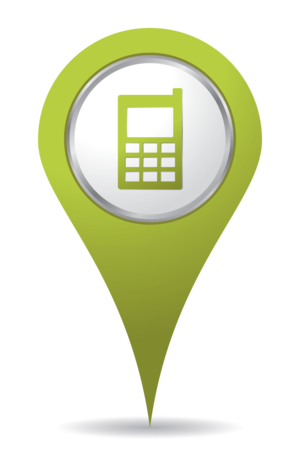Whenever you’re on Facebook, do you ever get the feeling that you’re being watched? An ad pops up that’s right up your alley, or three new articles show up in your feed that are similar to something you’ve just clicked on.
Sometimes it seems like Facebook knows you personally, and that’s because it does. It has algorithms that track what you like, watch and click on. That information is then passed along to Facebook advertisers.
Facebook itself isn’t the only culprit. Tons of companies use Facebook’s platform as a way to track you. In fact, right now there a probably dozens of companies that are watching your posts, storing your profile information and more, without you even realizing it. Today, I’m going to tell you how to stop it.
How did this happen in the first place?
When Facebook first started out, people rushed to the platform because of the many perks that it offered. One of those perks, and probably the most appealing, was the fact that Facebook was entirely ad-free. You could use the platform to connect with family and friends without being bothered by someone trying to sell you something.
Well, like they say, “All good things must come to an end.” Eventually, Facebook began selling ads like everyone else. And that’s when everything changed.
People realized that Facebook provided a treasure trove of information for advertisers. By clicking “like” users were telling companies exactly what they wanted -- more of this, less of that, please. This led to the big data tracking we now see.
Three sneaky ways companies are tracking you:
Most people understand that Facebook is tracking their preferences whenever they use the app. But, few realize they’re being tracked in other ways too. And, that’s what these third-party companies are banking on. If you don’t know you’re being tracked, then you won’t ask them to stop. So, here are three things to watch out for.
Facebook apps: This is when you receive a request to play a Facebook game your friends are obsessed with, and you decide to sign up. If you’ve ever done this before, then you’ve allowed that app developer track you. These third-party apps integrate with your Facebook profile and generally have permission to pull whatever information they want. And although you can edit what information they can access, very few people do.
Facebook logins: This is when you visit a site and it says "Log in with Facebook," and you do, then you're letting that company track you.
Friends’ apps monitoring you: Even if you didn’t download an app, Facebook's default settings allow apps your friends have installed to also see YOU. It’s pretty scary.
How to stop it from happening:
You might be wondering why this even matters, and how it really impacts you personally. The easiest way to answer those questions is to point out all of those big data breaches you hear about almost daily. Hackers rarely waste time on individuals these days. They’ve got much bigger fish to fry. Large retailers, for example – or the databases where these third-party companies store the information they’ve gathered. That’s why everyone should take these steps to protect their private information.
Review and edit installed apps: To see what apps you've installed over the years, open Facebook in your browser, click the down arrow in the upper right corner and select "Settings." Then click on the "Apps" header in the left column.
To see what information an app is accessing, click the pencil icon next to any of the apps to see and edit the settings. The first setting lets you set who can see that you use the app. It defaults to "Only Me," so it isn't a big deal. Below it, however, is another story.
In the case of Skype, for example, it pulls your public profile information along with your list of friends, email address, birthday and hometown.
Remember that this information is being stored on a third-party server. Not every app developer is going to have Microsoft-level security, and hackers are good at turning tiny pieces of stolen information into big gains.
If you want to keep using the app, you can deselect certain items, such as your email address. Be aware that won't remove the information from the app developer's servers, however. If you change your email address in the future, however, the developer won't get the new one.
Remove apps you don’t use: If you don't want to use the app anymore, you can click the "Remove app" link at the bottom of the page. Just remember that this won't automatically remove your information from the app developer's servers. For that you'll need to contact the app developer directly. Facebook has a link for more information on this under the "Remove info collected by the app" section in the app's settings.
Turn off apps completely: If you've deleted all the apps, and you're not keen on accidentally installing more in the future, you can turn off the app platform completely. Just note you won't be able to install apps or log in to third-party sites using Facebook until you turn this back on.
To turn off the app platform, go back to the App Settings page. Under "Apps, Websites and Plugins," click the "Edit" button. At first, this just looks like a way to disable app notifications and invites from other people, which is a big help on its own. However, you'll want to click the "Disable Platform" link in the bottom left corner.
Facebook gives you the standard warning about what disabling the platform does. If you're OK with it, click the "Disable Platform" button. Again, this won't remove information that app developers might have collected about you already.
Stop logging into sites using Facebook: In the future, when you're adding an app or logging into a website try to avoid logging in with Facebook. But, if you must use Facebook to log in, then look for the "Log in Anonymously" or “Guest” option so it won’t share your information.
Stop friends' apps from seeing your info: Apps can still get your information through your friends. By default as your friends install apps, those apps have permission to grab whatever info about you your friends can see.
To put a stop to this, go back to the App Settings page. Then under "Apps Others Use" click the "Edit" button.
You'll see everything that your friends' apps can see about you. Go through and uncheck every option listed on the page, and then click "Save." Now companies can't track new information about you.
Apps aren't the only worry you'll run into on Facebook. Recently I told you how scammers use Facebook like-farming can put your privacy at risk




 Microsoft working hard to bring these promises to life through compelling experiences that we hope you will love — experiences like OneNote, Skype, Sway and Minecraft.
Microsoft working hard to bring these promises to life through compelling experiences that we hope you will love — experiences like OneNote, Skype, Sway and Minecraft.




